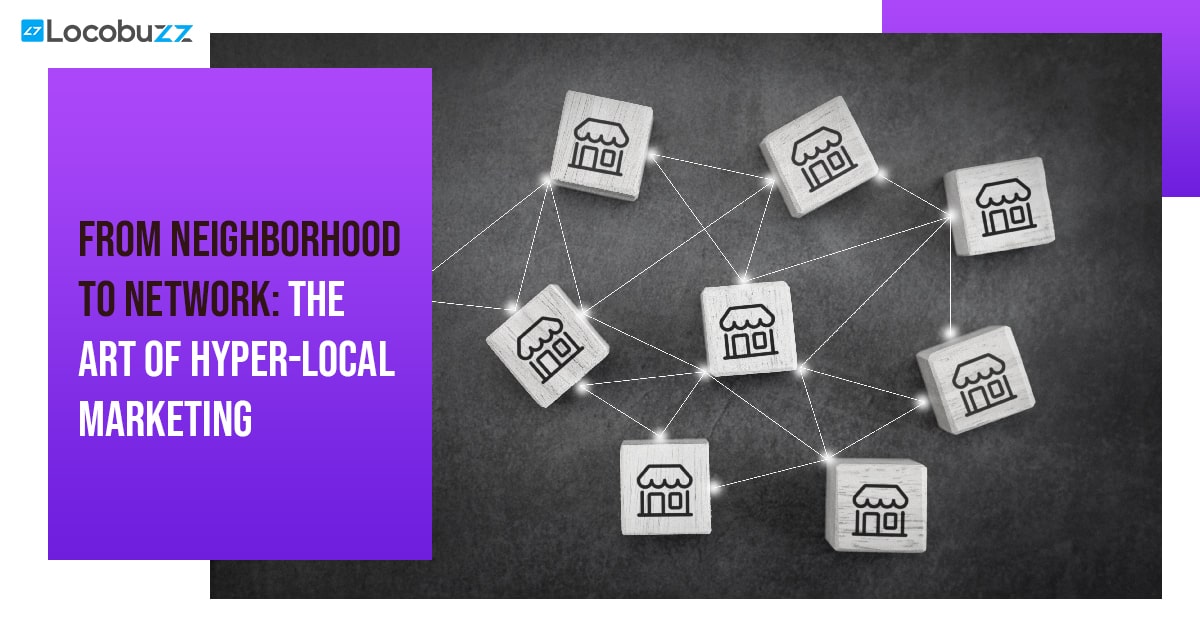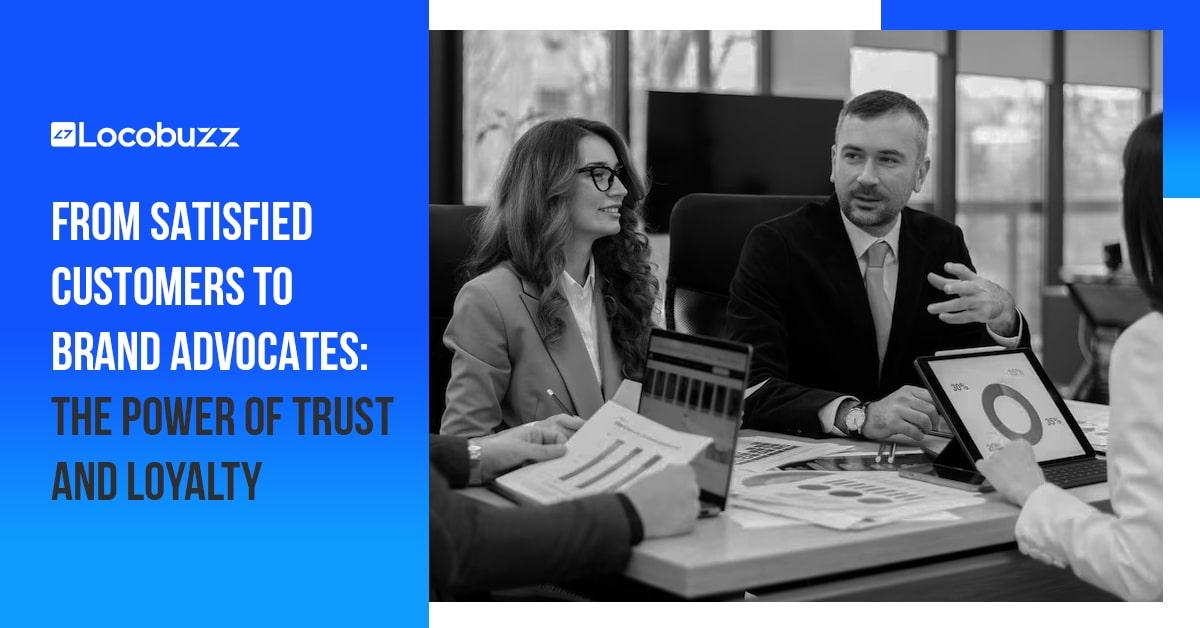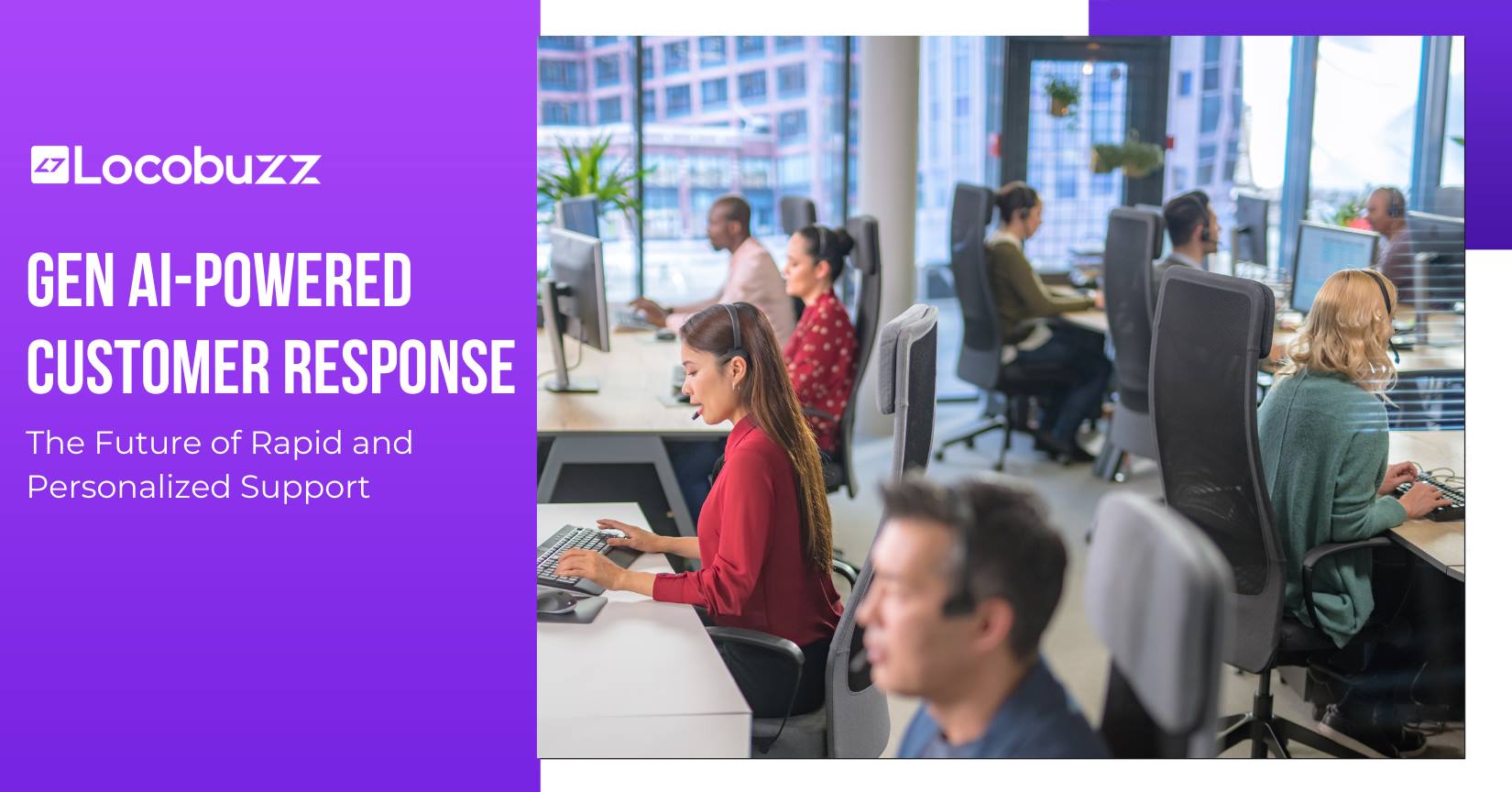From Neighborhood to Network: The Art of Hyper-local Marketing
 Hyperlocal marketing refers to the process of targeting a specific audience within a localized geographical area using marketing techniques that are tailored to the needs and preferences of that audience. Hyperlocal marketing is all about connecting with customers at a very local level and offering them personalized experiences that resonate with their interests and lifestyle.
Hyperlocal marketing refers to the process of targeting a specific audience within a localized geographical area using marketing techniques that are tailored to the needs and preferences of that audience. Hyperlocal marketing is all about connecting with customers at a very local level and offering them personalized experiences that resonate with their interests and lifestyle.
Table of Contents
Benefits of hyperlocal marketing
In today’s highly competitive business landscape, hyperlocal marketing has emerged as a game-changer. With its enhanced targeting capabilities, hyperlocal marketing allows businesses to connect with their customers at a very local level and offer them personalized experiences that resonate with their interests and lifestyle.
This not only helps businesses to build stronger relationships with their customers but also increases customer loyalty, resulting in repeat business, positive word-of-mouth, and increased brand advocacy. In this blog post, we’ll explore the benefits of hyperlocal marketing, including improved customer engagement and loyalty, increased conversion rates, and improved brand visibility and awareness. We’ll also delve into the location-based technologies that make hyperlocal marketing possible, such as geotargeting and geofencing, and how they can be leveraged to maximize the effectiveness of your marketing campaigns.
Enhanced targeting capabilities: One of the biggest advantages of hyperlocal marketing is its ability to target a specific audience within a localized geographical area. By using location-based technologies such as geotargeting and geofencing, businesses can identify and target customers based on their proximity to a physical location, such as a store or a restaurant.
This helps businesses to offer personalized experiences that are tailored to the needs and preferences of their local audience.
Improved customer engagement and loyalty: Hyperlocal marketing allows businesses to connect with their customers at a very local level and offer them personalized experiences that resonate with their interests and lifestyle. By doing so, businesses can build stronger relationships with their customers and increase customer loyalty.
This can lead to repeat business, positive word-of-mouth, and increased brand advocacy.
Increased conversion rates: By targeting a specific audience within a localized geographical area, businesses can increase the relevance and effectiveness of their marketing messages. This can lead to higher conversion rates, as customers are more likely to engage with marketing messages that are tailored to their local context and needs.
Improved brand visibility and awareness: By leveraging hyperlocal marketing strategies, businesses can increase their brand visibility and awareness within their local community.
This can help to build brand recognition, attract new customers, and establish the business as a trusted and reliable local resource.
Strategies for effective hyperlocal marketing
Now, we will discuss strategies that businesses can use to effectively connect with their local audience. We will cover techniques such as geo targeting and geofencing, local SEO optimization, leveraging social media for local engagement, and creating hyperlocal content.
By implementing these strategies, businesses can deliver targeted and relevant marketing messages to customers in their local area, increase their visibility in local search results, engage with their customers on social media, and establish themselves as a valuable resource within the local community. Let’s dive in and explore these strategies in more detail.
Geo Targeting and geofencing: Geotargeting and geofencing are two powerful location-based marketing techniques that allow businesses to target customers based on their location. Geotargeting involves delivering marketing messages to customers based on their physical location, while geofencing involves setting up a virtual boundary around a physical location and delivering marketing messages to customers who enter that boundary. These techniques can help businesses to deliver targeted and relevant marketing messages to customers in their local area.
Local SEO optimization: Local SEO optimization is the process of optimizing a business’s website and online presence for local search results. This involves optimizing the website’s content, metadata, and other elements to ensure that it ranks well in local search results. By doing so, businesses can increase their visibility in local search results and attract more local customers.
Leveraging social media for local engagement: Social media platforms such as Facebook, Instagram, and Twitter can be powerful tools for hyperlocal marketing. By creating and sharing content that is relevant to their local audience, businesses can engage with their customers and build stronger relationships with them. Social media can also be used to run targeted ads and promotions, which can help to increase brand awareness and drive sales.
Creating hyperlocal content: Creating hyperlocal content is another effective strategy for hyperlocal marketing. This involves creating content that is specifically tailored to the needs and interests of the local audience. This can include blog posts, videos, and other types of content that address local topics and issues. By creating hyperlocal content, businesses can establish themselves as a trusted and valuable resource within the local community.
By adopting strategies such as geo-targeting and geofencing, local SEO optimization, social media engagement, and hyperlocal content creation, businesses can connect with their local audience and drive engagement, loyalty, and sales.
Tools and technologies for hyperlocal marketing
Hyperlocal marketing has become an essential strategy for businesses looking to reach their local audience effectively. One of the critical components of hyperlocal marketing is leveraging the right tools and technologies. In this section, we will explore some of the top tools and technologies for hyperlocal marketing, including location-based analytics, customer data platforms, hyperlocal advertising platforms, and mobile marketing technologies.
By using these tools, businesses can gain insights into customer behavior, preferences, and needs, and deliver more targeted and personalized marketing messages to their local audience, ultimately driving engagement, loyalty, and sales.
Location-based analytics: Location-based analytics is a powerful tool for hyperlocal marketing that enables businesses to analyze customer data based on their location. By leveraging location-based analytics, businesses can gain insights into customer behavior, preferences, and needs based on their location. This can help businesses to deliver more targeted and relevant marketing messages to their local audience.
Customer data platforms: Customer data platforms (CDPs) are another important tool for hyperlocal marketing. CDPs are designed to collect, manage, and analyze customer data from a variety of sources, including online and offline interactions. By leveraging customer data platforms, businesses can gain a comprehensive view of their customers and deliver more personalized and targeted marketing messages.
Hyperlocal advertising platforms: Hyperlocal advertising platforms enable businesses to deliver targeted and relevant advertising messages to customers based on their location. These platforms use location-based technologies such as geotargeting and geofencing to identify and target customers within a specific geographic area. This can help businesses to reach their local audience more effectively and drive engagement, loyalty, and sales.
Mobile marketing technologies: Mobile marketing technologies, such as mobile apps and SMS messaging, are also important tools for hyperlocal marketing. By leveraging mobile marketing technologies, businesses can deliver targeted and personalized marketing messages to customers based on their location and preferences. This can help to increase engagement and loyalty among local customers.
Examples of successful hyperlocal marketing campaigns
Domino’s Pizza: Domino’s Pizza is a great example of a company that has successfully leveraged hyperlocal marketing strategies. They have implemented a “pizza tracker” system that allows customers to track the progress of their pizza order in real-time. They have also implemented hyperlocal advertising campaigns that target customers within a specific geographic area. These campaigns have helped them to increase their sales and brand awareness in local markets.
Sephora: Sephora is another example of a company that has successfully leveraged hyperlocal marketing strategies. They have implemented a “store locator” feature on their website that allows customers to find the nearest Sephora store based on their location. They have also implemented hyperlocal advertising campaigns that target customers within a specific geographic area. These campaigns have helped them to increase their foot traffic and sales in local markets.
Starbucks: Starbucks is a well-known brand that has successfully leveraged hyperlocal marketing strategies. They have implemented a mobile app that allows customers to order and pay for their drinks in advance. They have also implemented hyperlocal advertising campaigns that target customers within a specific geographic area. These campaigns have helped them to increase their sales and customer engagement in local markets.
Analysis of the key factors that contributed to their success
The success of these hyperlocal marketing campaigns can be attributed to several key factors, including:
Use of technology: Each of these companies has leveraged technology, such as mobile apps, online ordering systems, and hyperlocal advertising platforms, to reach and engage with their local audience.
Personalization: Each of these companies has implemented personalized marketing messages and offers that are tailored to the needs and preferences of their local audience.
Consistency: Each of these companies has maintained a consistent brand image and message across all of their marketing channels, which has helped to build trust and loyalty among their local audience.
Data-driven approach: Each of these companies has used data and analytics to gain insights into customer behavior and preferences based on their location, which has helped them to deliver more targeted and relevant marketing messages.
Challenges of hyperlocal marketing
In this section, we will discuss the challenges businesses face when implementing hyperlocal marketing strategies. While hyperlocal marketing can be a powerful tool for engaging with customers and driving sales, it also presents several unique challenges. These challenges include navigating privacy concerns and regulations, managing limited resources and scalability, and the need for accurate data and analytics. In this post, we will explore each of these challenges in more detail and provide practical advice for overcoming them.
Privacy concerns and regulations: With hyperlocal marketing, businesses are collecting and using more customer data than ever before. This has raised concerns about privacy and data protection. Businesses need to ensure that they are collecting and using customer data in compliance with relevant regulations, such as GDPR and CCPA, and that they are transparent with their customers about how their data is being used.
Limited resources and scalability: Hyperlocal marketing campaigns require a significant amount of resources, including time, money, and personnel. It can be challenging for businesses with limited resources to scale their hyperlocal marketing efforts beyond a few locations. Additionally, managing and optimizing hyperlocal campaigns can be time-consuming, requiring a dedicated team and ongoing investment.
The need for accurate data and analytics: Hyperlocal marketing relies on accurate data and analytics to understand customer behavior and preferences based on their location. However, collecting and analyzing accurate data can be challenging, particularly for businesses that operate across multiple locations or have limited access to customer data. Additionally, interpreting and applying data insights to hyperlocal campaigns requires specialized skills and expertise.
Locobuzz Hyperlocal markeing stratergy
Locobuzz CX Suite is a software platform designed to help businesses manage their customer experience across multiple channels, including social media, email, and chat.
Regarding hyperlocal marketing, Locobuzz CX Suite offers several features that can help businesses target specific local audiences. For example, the platform’s location-based social listening feature allows businesses to monitor social media conversations in specific geographical areas, such as neighborhoods or cities, to gain insights into local consumer behavior and preferences.
Additionally, Locobuzz CX Suite enables businesses to create and execute hyperlocal marketing campaigns through its advanced audience segmentation capabilities. By segmenting their customer base by location, businesses can deliver more personalized and relevant messaging to consumers in specific areas.
Overall, Locobuzz CX Suite can be a useful tool for businesses looking to leverage hyperlocal marketing to engage with customers on a more personalized level and drive revenue growth.
Conclusion
Hyperlocal marketing has become a crucial tool for businesses to differentiate themselves and stand out in today’s highly competitive business landscape. By targeting a specific audience within a localized geographical area, businesses can offer personalized experiences that resonate with their interests and lifestyle, leading to improved customer engagement and loyalty, increased conversion rates, and improved brand visibility and awareness.
To effectively implement hyperlocal marketing strategies, businesses can leverage tools and technologies such as geo targeting and geofencing, local SEO optimization, social media engagement, hyperlocal content creation, location-based analytics, customer data platforms, hyperlocal advertising platforms, and mobile marketing technologies.
As the trend of personalized experiences and location-based technologies continues to grow, hyperlocal marketing is expected to become an even more important strategy for businesses to connect with their local audience and drive growth.Unlock the power of hyperlocal marketing with Locobuzz CX Suite today and start engaging with your local customers like never before!”






















